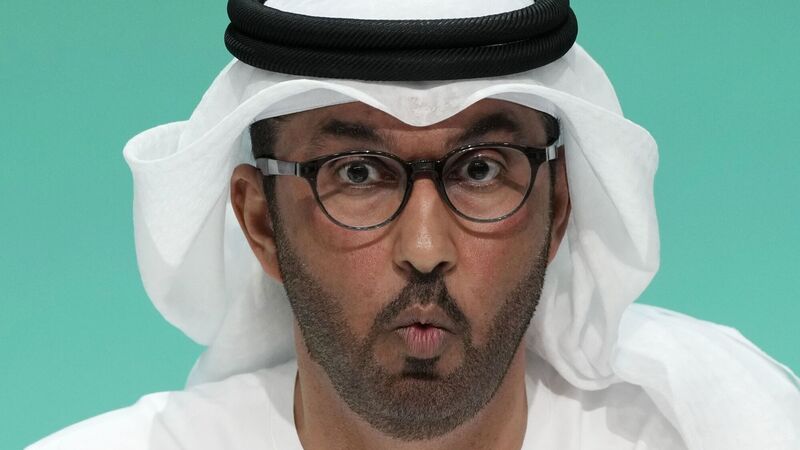Fossil fuel-linked Cop28 chief demands countries should 'raise the bar higher'

Cop28 president Sultan Ahmed al-Jaber made the plea as intensive negotiations begin on reaching a deal on global environmental action. Picture: Kamran Jebreili/AP
The controversial president of the UN's climate change summit has called on countries to "raise the bar higher" as intensive negotiations begin on reaching a deal on global environmental action.
Sultan Ahmed al-Jaber, who has come in for severe criticism over his ties to fossil fuel even before Cop28 began in Dubai, said countries must come together for a deal, as tussling over "phasing out" or "phasing down" of the likes of oil and gas intensifies.
CLIMATE & SUSTAINABILITY HUB













